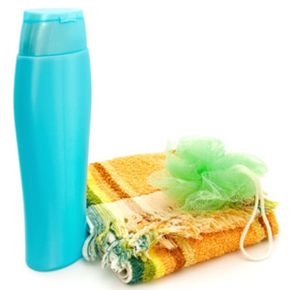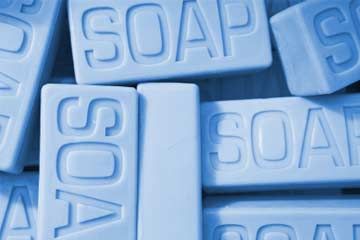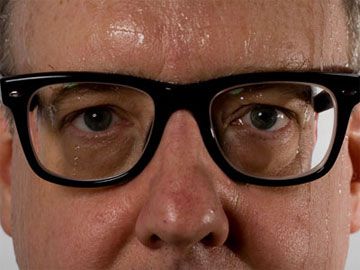The human body has about 3 million sweat glands. Walking down some aisles in our nation's drugstores or supermarkets, you might think that there are also about 3 million products to help wash sweat away and make us smell like mountain streams, spring meadows or glaciers (whatever they smell like). With so many choices, the question emerges almost as quickly as lather on a bath puff: Is one soap really better than another? And, more specifically, do body washes marketed as deodorizing remove body odor, or do they simply layer perfume on top of the stench?
To answer this question, it's first helpful to understand that deodorizers work by adsorbing odor molecules -- by dissolving or emulsifying them -- or by killing the bacteria at the root of the odor. And, no, that's not a typo. Adsorbing is the process by which molecules adhere to the surface of another item -- this is the way that activated charcoal works. This is different from absorption, in which the molecules fill in the pores of another item.
Advertisement
Both adsorption and bacterial death help you smell better, but whether your body wash does these is another question entirely. Before we can determine if body washes are really deodorizing, it's useful to understand how both body odor and soap work. So check out the next page, where body odor is a tag-team sport with sweat and bacteria working together to help us vie for whiffy trophies!
Advertisement


